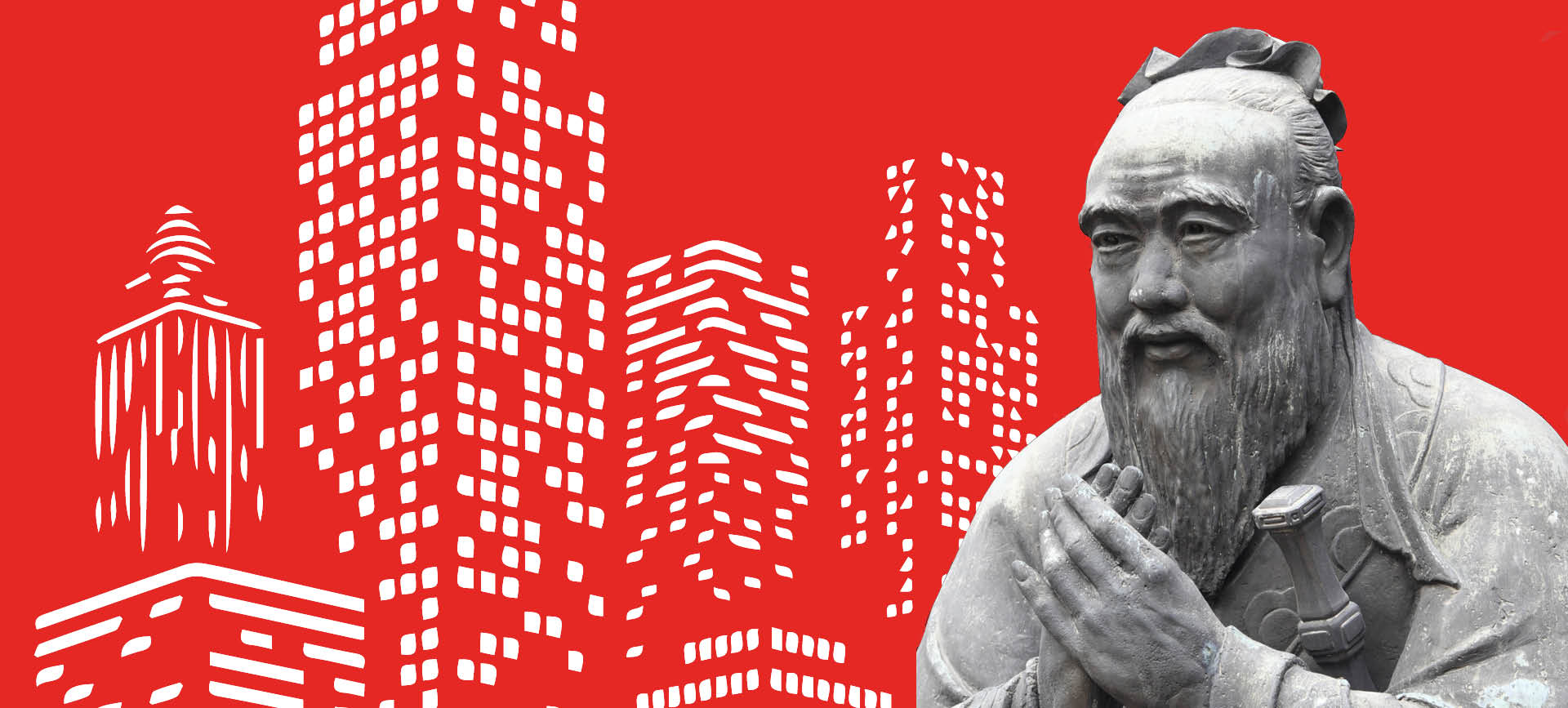With the East Asian ‘tiger economies’ outperforming many other countries in recent times, Macquarie researchers have been investigating whether East Asian philosophy is the key to academic and economic competitiveness.
Associate Professors Chris Baumann and Hume Winzar, of the Faculty of Business and Economics, together with Professor Tony Fang at the Stockholm Business School, were recently invited to edit special edition of the journal Cross Cultural and Strategic Management, which focused on East Asian wisdom and its impact on business culture and performance.
Largely derived from the teachings of Confucius (551 B.C. to 479 B.C.) and other elements of ancient Chinese philosophy, much of East Asian wisdom is focused on the successful combination of seemingly opposing forces (for example, the concept of Yin and Yang).
While there is growing recognition that the West can learn from this wisdom, it is only relatively recently that researchers in business disciplines have attempted to measure its impact – in particular, how it influences everyday human behaviour such as negotiation style, work ethic and performance.
“Our understanding of how Confucian culture drives performance has been speculative at best,” says Baumann, who is also a Visiting Professor at Seoul National University. “Generally speaking, culture does affect behaviour, but whether Confucian culture drives specific attitude and behaviour such as work ethic was still ambiguous.”
In their own paper Confucianism: measurement and association with workforce performance Baumann and Winzar worked with PhD student Doris Viengkham to test the association between three aspects of Confucianism and a series of work-related behaviours.
They concluded that the pedagogical approach of Confucian East Asia, with its emphasis on education and strict discipline, are shown to have a spill-over effect into how individuals perform in the workplace.
The study was unique in its multi-faceted approach to Confucianism, with previous studies assuming a relatively homogenous culture across East Asian countries. Baumann and his colleagues explored Confucianism in China, South Korea and Taiwan, or the ‘Confucian Orbit’.
“We identified at least five ‘types’ of workforce in East Asia, whose prioritisation of Confucian values are meaningfully different”, Baumann says. “It really highlights the need to move beyond a ‘one size fits all’ approach to managing workforce diversity, especially in culturally diverse places like Australia, including our own university.”
How does your cultural background influence the way you work? Tell us in the comments.


 Back to homepage
Back to homepage
Comments
We encourage active and constructive debate through our comments section, but please remain respectful. Your first and last name will be published alongside your comment.
Comments will not be pre-moderated but any comments deemed to be offensive, obscene, intimidating, discriminatory or defamatory will be removed and further action may be taken where such conduct breaches University policy or standards. Please keep in mind that This Week is a public site and comments should not contain information that is confidential or commercial in confidence.